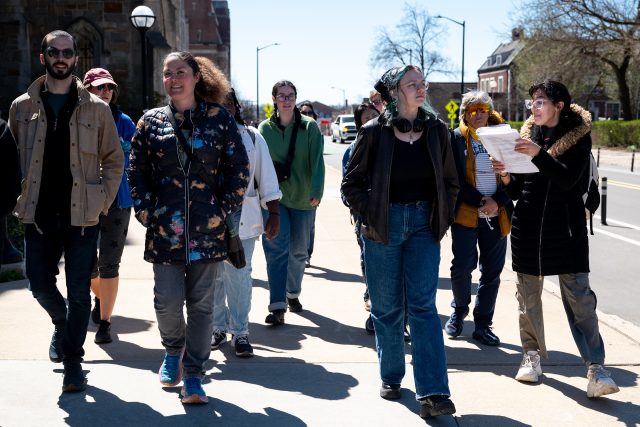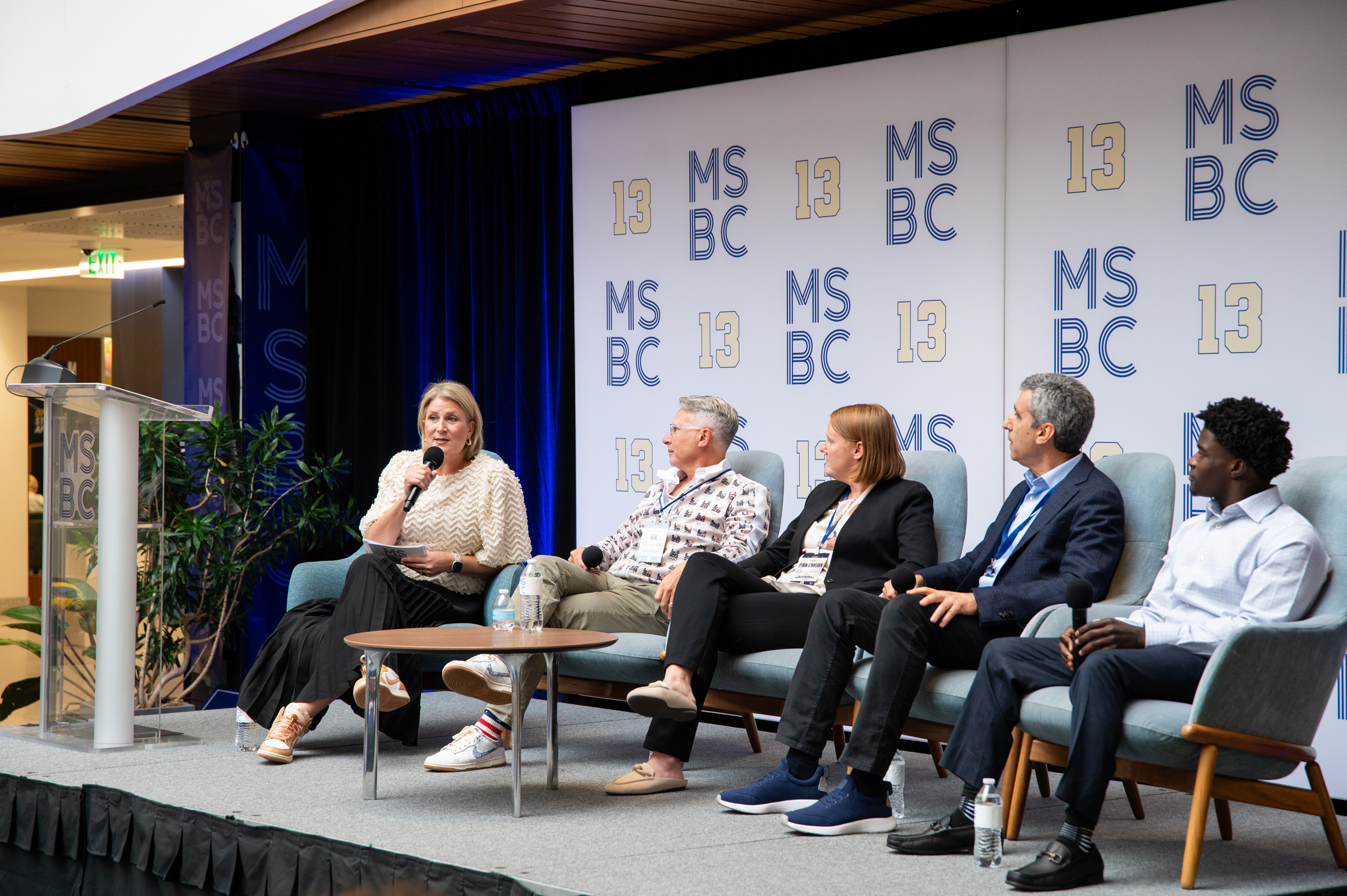[ad_1]
Noon at Night, a global solidarity network that aims to connect cultures through food, led culinary and campus tours April 12 and 13 which highlighted historical and modern University of Michigan student movements. The tours highlighted locations of previous student organizing and resistance and ended at Palmer Commons, where attendees ordered food created from archived recipes that correspond with movements shared on the tour. In addition to the tours, Noon at Night also hosted a cafe and “teach-in” session during both evenings which focused on current student movements on campus.
Noon at Night has three components: an educational and transgressive classroom and network; an archive of global student movement work and a cafe that connects sociopolitical solidarity across differences. Noon at Night is sponsored by the U-M Arts Initiative and is the result of a year-long project with event organizer Dawn Weleski, a multi-disciplinary artist who is currently an artist-in-residence at U-M Student Life.
In an interview with The Michigan Daily, Weleski said the food served at the cafe reflects that served during the social movements discussed in the tours, highlighting the anonymous quotes from movement leaders on the packaging.
“We looked at a number of archives at University of Michigan libraries and interviewed current and past student movement workers who are alums,” Weleski said. “We asked them, ‘What advice would you offer your young organizer and what is the legacy of your work?’ and those quotes were then transcribed and offered on … food (boxes).”
LSA sophomore Lindsey Smith, a student in ENVIRON 391: Sustainability and the Campus, said the cafe provided a space for community interaction on campus.
“One of the main goals of the cafe is to bring people together,” Smith said. “In our business plan, we highlighted possible events that can be held in the cafe, such as cooking classes, making new friends and learning new skills. It’s really not just going to be a cafe but a meeting place to meet new people.”
Rackham student Marsalis Jolley, Noon at Night tour guide, said the tours are meant to help students understand that social movements are fundamental to the University’s decision making.
“I’m hoping students learn about social movements and see how they played a part in our foundation as a University,” Jolley said. “The founding of Trotter (Multicultural Center) and some of the Black study programs were not given to the students without students actually fighting or actually going out there and demanding that they have the same representatives.”
Rackham student Alyssa Murphy, who took a Noon at Night tour, said the experience was informative and she hopes the history she learned about will be commemorated.
“I thought the tour was really well put together,” Murphy said. “I had no idea about the history of most of these places or spaces. … I thought the most impactful moments included the effects of protesting on this University in the past and relating it to protests in the present.”
The cafe featured a pay-what-you-can sliding scale pricing system and food items such as coffee, tea and breakfast items in the morning. In the afternoon, the cafe’s menu expanded to include more non-breakfast options that were popular during student movements.
LSA senior Yumna Dagher, an artist working with Noon at Night, said she became involved in the organization because of her love for art and food.
“I got involved through my boss who invited the artist, Dawn Weleski, to one of our meetings,” Dagher said. “Upon hearing about Dawn’s work, I was really engaged because it combines so many things that are right up my alley: art, food and using food as a conduit for meeting making and connection.”
Dagher said Noon at Night hopes to have a long-term impact on the U-M community.
“Noon at Night is pitched as a transgressive classroom,” Dagher said. “We are thinking really forward with bringing the program outward with creating an engaging community. In the long term, we want to bring and build transnational solidarity between different activists striving to build resiliency within their own communities.”
Rackham student Aditi Khandare said the Noon at Night experience taught her the importance of protests on college campuses specifically.
“I was really excited about this because I get to learn about history and all the protests that have been happening,” Khandare said. “I feel like universities are a hub of all the people who are open-minded and are still the future of the country. So being open about all the nonconservative or nonconventional things could be a way for society to move on; a lot of these protests that have changed the world started in universities.”
Weleski said they felt amazed by U-M students’ persistent commitment to protest over the course of the University’s history.
“I’ve taught at a couple of universities, I’ve been an artist in residence in lots of different locations around the world,” Weleski said. “The dedication to organizing the resilience of the students and the energy that they bring to the work that they’re doing, and the fidelity to the practice of hope that they are enacting day after day is pretty unprecedented for me to see. I only hope that we can do justice to this history and continued growth.”
Daily Staff Reporters Audrey Shabelski and Maddyn Shapiro can be reached at audres@umich.edu and maddyns@umich.edu.
Related articles
[ad_2]
Source link











